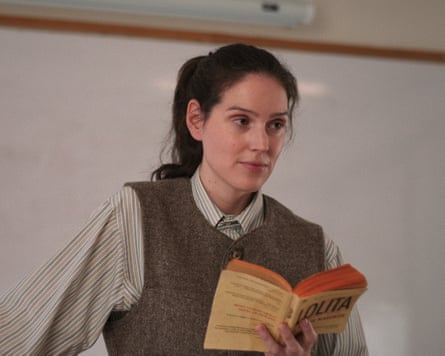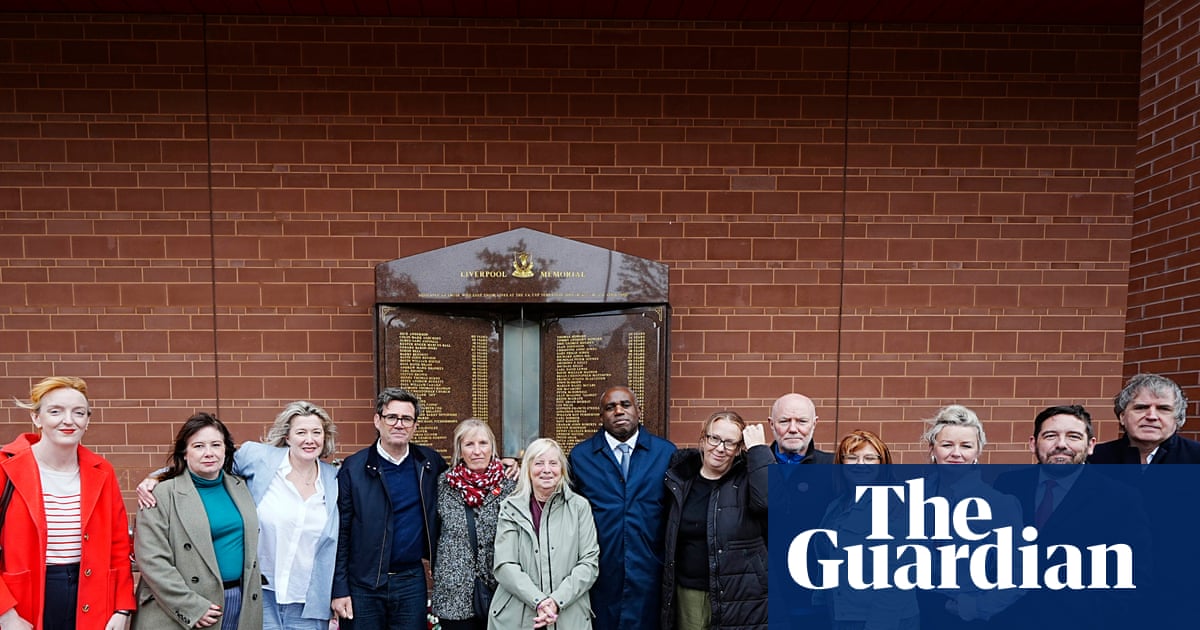At the tail end of 2023, author Madison Griffiths posed a question on her Instagram: “Has anyone here ever been in a relationship with a professor or a tutor?”
Hundreds of responses flooded in. There were those who revealed that their parents had met, many decades prior, in the lecture hall. Younger women reported they’d recently been involved with a university superior. Their experiences were diverse, but what united those who messaged her was gender: no men came forward to say they had been in relationships with a professor or tutor. In Griffiths’s inbox, at least, it was all women.
For Griffiths, the question had been a personally motivated one. When she was 21, about 18 months after she’d been in his class, she asked a university tutor she had a crush on out for a drink, attracted by his intelligence and charm. They started dating and spent the next five years in an on-and-off relationship, Griffiths changing her university major to avoid winding up in his class again. They were only separated by a handful of years in age but in the time since their breakup, Griffiths found the afterlife of that romance “convoluted and complex in a way that I hadn’t encountered in other relationships”.
“From 19 years old, my dynamic with him was one where I put him on a pedestal and I wanted him to really ‘see me’… and I think that had everything to do with the implicit power imbalance that operated right from the get-go,” Griffiths says. “It wasn’t until the relationship’s fallout that I started reflecting on these things.”
The conversations she had as a result of that Instagram post snowballed into something bigger. Both Griffiths’s own experience and that of four of the women who reached out after her Instagram call-out would form the basis of a new book, Sweet Nothings, which explores the ethics and mechanics of “pedagogical relationships”: those between student and teacher, and a phenomenon Griffiths regards as highly gendered.
Griffiths spent a year speaking to her four case studies, women now in their 30s and 40s who had “lived lives well and truly outside of these relationships” and were now able to reflect on what had been. She readily admits that she was probably subconsciously “looking for women that reminded me somewhat of myself, or could help me make sense of my own [experience]”. In her quest to understand these dynamics, Griffiths also spoke to male professors and tutors who had slept with a student – but not the ones who’d had relationships with her four subjects, to protect their anonymity. (Her subjects are also given pseudonyms and minor elements of their stories, like placenames, were fictionalised to obscure them.)
Sweet Nothings is being published into a cultural moment that feels perhaps ready to begin reckoning with professor-student relationships. It arrives just ahead of A24’s Sundance winner Sorry, Baby, about one woman’s residual trauma from such a relationship, and not long after both New Yorker fiction and Diana Reid’s bestselling novel Love & Virtue on the same topic. Perhaps most importantly, it comes in the long shadow of the #MeToo movement, as the conversation has expanded, sometimes uncertainly, to consensual relationships that feel not-quite-right – and what, exactly, in the arena of sex deserves our condemnation.

Griffiths focused specifically on relationships that happened at university, where both parties were adults, and no abuse involving minors or high school students. What makes these relationships interesting to Griffiths is the grey area they operate in. Sex between a student and a professor is not against the law and, in many cases, not even expressly against university policy – yet these relationships can leave a lifelong mark on the women who enter them.
“I was particularly interested in sex that was ‘problematic’ but not necessarily ‘bad’,” Griffiths says. “Every woman I spoke to was of the age of consent – [but] well and truly nursing a unique harm. The women that I was in conversation with didn’t necessarily feel as if something completely, egregiously untoward took place within the framework of consent. It was something else entirely.”
What unfurls in Sweet Nothings is an examination of the way men in positions of authority can appeal to women when they are younger, at a moment in their lives when they perhaps feel that youth and beauty afford them a power of its own. Instead of flat condemnations, Griffiths wanted to highlight the agency a lot of these women had in procuring these relationships and explore their own desires. But she found that some men appeared over time, as one character notes, “vile, dull and obvious” for using their sway in the classroom to get with women, sometimes many years their junior, who wouldn’t look twice at them in a pub. A complicated shame and anger often bloomed as women looked back on these relationships in the rear-view mirror, their memories of university forever soured.
Two of her subjects had seen their former professor or tutor go on to date other students after their own breakup. The revelation that they may have been part of a kink, “as opposed to necessarily someone who met the love of their life in the wrong outfit, in the wrong place, in the wrong time, did quite severe harm to these individuals’ sense of self,” Griffiths says. So too did realising that a man they once idolised, who has a mastery of the field they aspire to work in, had made their relationship about sex when perhaps what they were really craving was to be told they could “be him one day”.
It perhaps won’t surprise you to hear that Lisa Taddeo’s Three Women, the 2019 bestseller about the sex lives of three real American women (including one who, at age 17, had a sexual relationship with her high school teacher), was an inspiration for Griffiths.
after newsletter promotion
But another book looms much larger: Helen Garner’s The First Stone, mentioned directly in Sweet Nothings as a book Griffiths finds both compelling and aggravating. Garner’s 1995 account of two University of Melbourne students who accused a residential college master of sexual assault has been critically re-evaluated in recent years for its often-scathing cynicism towards its female subjects. Garner herself had an affair with an older tutor while at university, she revealed in The First Stone – but didn’t view it as an abuse of power, and regarded the young women’s decision to lodge a complaint with police over being groped as a “heartbreaking” overreaction and affront to feminist ideals.
Griffiths read Garner’s book twice while writing her manuscript, determined to do her own differently. Garner didn’t interview the women involved in the case for The First Stone – they had declined her interview requests – and Griffiths found the absence of their voices distracting. She very deliberately made her female subjects the centre of her story and is happy to be writing in an era when “we can speak in less sweeping terms” about gender and consent.
“I think older generations have a very cartoonish view of an assailant and his prey,” she laughs.
But even 30 years on from The First Stone, Griffiths found she and her subjects still brushed up against an attitude of, as she puts it, “Well, what did she get out of it?” Despite typically being in only their late teens or early 20s, Griffiths found that uni students are seen as capable and headstrong, and therefore unable to be victimised like a high school student who is just a couple years younger than them. That disregard for uni students, paired with the innate respect professors enjoy, has muddied understandings of power and allowed men at universities to do what they like.
“There is certainly a class dimension to all of this,” Griffiths says. “I think professors are held to high esteem and are able to operate in [this] way throughout a cultural understanding of them as quite esoteric, niche, unconventional genius. Genius men throughout history have gotten away with a lot.”
Sure enough, while two of the four women featured in Sweet Nothings filed complaints against the men they had relationships with, there have been no repercussions for any of the men. There are rules around student-teacher relationships at most Australian universities, Griffiths says, but “they are open to interpretation”. At many universities, guidelines only apply to relationships between teaching staff and their current students; for Griffiths and two of her subjects, the relationship began after they were in the same classroom. The order of events didn’t change the power dynamic.
“One thing that I found was the origin story of all of these relationships, having once met in the classroom, pervaded the relationships at their core. It never went away,” Griffiths says. The women she spoke to remained eager to impress or prove themselves to their former teachers, forever affording them the upper hand.
For Griffiths, now aged 31, that has proven true. “I guess at the core of my almost childish want with him was to be taken seriously,” she says. “I’d be lying if I said there wasn’t a shadow of that in my relationship to my work more broadly.” She hopes that if her former tutor reads her book, he will see that she is able to look at their relationship academically now – “with the fine-tooth comb that perhaps he didn’t teach me”.
-
Sweet Nothings is out now ($36.99)

.png) 2 months ago
21
2 months ago
21

















































